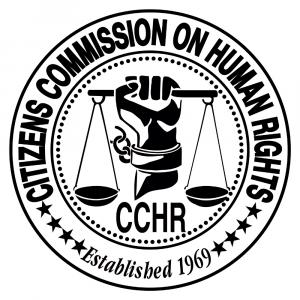
Psychiatrists continue to prescribe antipsychotic drugs despite research finding that 20%-30% of patients taking the drugs will develop potentially permanent and disabling involuntary muscle movements known as tardive dyskinesia.

Researchers analyzing online comments about tardive dyskinesia found that 64% of the comments were negative, expressing anger or rage about the symptoms and feeling insecure and afraid of being judged by others.
Millions of Americans taking the drugs may develop uncontrollable muscle jerkiness that can be permanent. Many report they were never told of the risk.
WASHINGTON, DC, US, June 2, 2022 /EINPresswire.com/ -- The American Psychiatric Association just concluded its five-day annual convention, but an online search of its more than 300 topical sessions failed to find any focus given to the potentially permanent and disabling movement disorder resulting from the antipsychotic drugs psychiatrists prescribe.
Tardive dyskinesia (TD) refers to the drug-induced involuntary muscle movements that can develop over time from taking
Tardive dyskinesia is characterized by the slow onset of repetitive, involuntary muscle movements of the face, lips, tongue, limbs, and torso that can range from a slight tremor, unnoticed by the patient, to uncontrollable movements of the entire body. More severe involuntary movements can become a disabling condition.
Studies have found that TD will develop in 20%-30% of those taking antipsychotic drugs. Older age is a major risk factor for TD, with a prevalence rate of up to 50% to 60% for those over the age of 45.
TD is a potentially permanent condition, even when the drugs causing the condition are discontinued. In a 2013 study published in Tremor and Other Hyperkinetic Movements, researchers Olga Waln and Joseph Jankovic wrote: “TD tends to persist for years or decades in the majority of patients, even after elimination of the offending drug.”
A 2014 study at Emory University’s movement disorders clinic found that only about one in eight patients ever fully recovered from TD, leading researcher Deepti Zutshi, MD, to conclude that the findings “should emphasize the seriousness and permanency” of TD.
“Tardive dyskinesia is a dreadful disorder caused by all the antipsychotic drugs,” wrote psychiatrist Peter Breggin, M.D., on the madinamerica.com website. “People who suffer from it tend to become isolated from society and many become disabled.”
TD was first identified as an antipsychotics-induced condition in the late 1950s. In spite of this fact, prescriptions for antipsychotic drugs continued to be written. More than 11 million Americans are currently taking antipsychotic drugs, including more than 800,000 children and adolescents 17 years of age and younger. The TD prevalence of 20%-30% suggests that some 3 million Americans may already have TD symptoms – far more than the 500,000 typically referenced in psychiatric sources.
Some 30,000 children 5 years of age or younger, including 1,300 infants, are being given antipsychotics, risking permanent damage at the very start of their lives. Dr. Breggin notes: “In recent decades, it has become entirely too common for psychiatrists and other prescribers to give psychiatric drugs to children who could be far better treated by other means.”
Many taking antipsychotic drugs report they were not told of the risk of tardive dyskinesia by their doctor. A 2019 survey found that 58% of patients were not aware that the antipsychotics they were taking can cause TD. Among those already afflicted with TD, 80% were emotionally distressed by the jerky movements, nearly half (47%) said it affected their job performance, and two-thirds reported a drop in self-esteem (68%) and self-confidence (64%).
Another study, led by Mallory Farrar and reported in BMC Psychiatry in 2021, analyzed online comments about TD and found that 64% of the comments were negative, expressing anger or rage about the symptoms and feeling insecure and afraid of being judged by others.
“Patients expressed feeling unaccepted by society or uncomfortable in their own skin,” the researchers wrote. “Some feared being judged by others or being asked about their twitching. A few indicated that they would rather be dead than have TD.” A disclaimer on the study notes that the researchers are employees of a company that manufactures a drug to treat TD.
Race is also a risk factor for TD. A 2004 evaluation of found antipsychotic-induced TD is more prevalent in African Americans than Americans of European descent. African Americans are also disproportionately diagnosed with schizophrenia and are more likely to be prescribed antipsychotic drugs in the first place.
The adverse effects of antipsychotics even before the emergence of tardive dyskinesia can be severe, including significant weight increase, diabetes, insomnia, tremors, anxiety, pancreatitis, cardiovascular disorders, liver problems, stroke, and death.
A rare, but potentially fatal result of antipsychotics is neuroleptic malignant syndrome, in which the patient develops a fever and becomes confused, agitated and extremely rigid. The syndrome can occur within days or months of taking an antipsychotic drug and can range in severity from mild to life-threatening.
Discontinuing an antipsychotic drug might lessen or resolve TD symptoms, but it might also bring on withdrawal symptoms that can be severe and even make the TD worse. Drug manufacturers have hit on a different and more profitable approach: developing drugs to treat TD that the patient takes while continuing to take the antipsychotic drug causing the TD.
Drugs to treat TD are highly profitable. The retail cost of a standard dose costs about $80,000 a year per patient. The psychiatric industry that profited while causing a proliferation of this neurological disorder will now profit from treating it. In 2019, a drug company that manufactures both antipsychotic drugs and a drug to treat TD predicted sales of its TD drugs would reach more than $2 billion.
The drugs used to treat tardive dyskinesia carry their own risks, according to Robert Whitaker in his report, “Drug-Induced Brain Damage That Rolls On and On.” Common adverse effects from current TD-treatment drugs include fatigue, sedation, sleepiness, insomnia, depression, restlessness (akathisia), agitation, and nausea. Less common, but more serious side effects include severe depression, suicidality, low blood pressure, increased risk for cardiac arrest, and neuroleptic malignant syndrome.
The Citizens Commission on Human Rights (CCHR) continues to make Americans aware of the risks of the serious, even life-threatening adverse effects of antipsychotics and other psychiatric drugs so they can make fully informed decisions about taking or discontinuing the drugs.
WARNING: Anyone wishing to discontinue or change the dose of an antipsychotic or other psychiatric drug is cautioned to do so only under the supervision of a physician because of potentially dangerous withdrawal symptoms.
CCHR was co-founded in 1969 by members of the Church of Scientology and the late psychiatrist and humanitarian Thomas Szasz, M.D., recognized by many academics as modern psychiatry’s most authoritative critic, to eradicate abuses and restore human rights and dignity to the field of mental health. Since then, CCHR has been instrumental in obtaining more than 228 laws against psychiatric abuses and violations of human rights worldwide.
The CCHR National Affairs Office in Washington, DC, has advocated for mental health rights and protections at the state and federal level. The CCHR traveling exhibit, which has toured 441 major cities worldwide and educated over 800,000 people on the history to the present day of abusive and racist mental health practices, has been displayed at the Congressional Black Caucus Foundation Annual Legislative Conference in Washington, DC, and at other locations.
References:
1. https://www.psychiatry.org/psychiatrists/meetings/annual-meeting/online-annual-meeting
2. https://www.drugs.com/drug-class/antipsychotics.html
3. https://www.ncbi.nlm.nih.gov/pmc/articles/PMC5472076/
4. https://www.ncbi.nlm.nih.gov/pmc/articles/PMC5472076/pdf/i1524-5012-17-2-162.pdf
5. https://www.ncbi.nlm.nih.gov/pmc/articles/PMC3709416/pdf/tre-03-161-4138-1.pdf
6. https://www.ncbi.nlm.nih.gov/pmc/articles/PMC6459148/pdf/ndt-15-785.pdf
7. https://pubmed.ncbi.nlm.nih.gov/30522959/
8. https://www.ncbi.nlm.nih.gov/pmc/articles/PMC3709416/pdf/tre-03-161-4138-1.pdf
9. https://www.medpagetoday.com/MeetingCoverage/AANMeeting/32389
10. https://www.madinamerica.com/2016/10/hidden-epidemic-exposed-new-tardive-dyskinesia-td-resource-center/
11. https://www.madinamerica.com/2016/10/hidden-epidemic-exposed-new-tardive-dyskinesia-td-resource-center/
12. https://www.cchrint.org/psychiatric-drugs/people-taking-psychiatric-drugs/
13. https://www.cchrint.org/psychiatric-drugs/people-taking-psychiatric-drugs/
14. http://www.huffingtonpost.com/dr-peter-breggin/15-million-award-in-child_b_4861391.html
15. https://www.biospace.com/article/releases/neurocrine-biosciences-honors-mental-health-month-and-raises-awareness-of-tardive-dyskinesia-and-its-impact-on-patients/
16. https://bmcpsychiatry.biomedcentral.com/articles/10.1186/s12888-021-03074-9
17. https://www.madinamerica.com/2021/10/manufacturer-tardive-dyskinesia-td-drugs-finds-td-emotionally-devastating/
18. https://journals.lww.com/psychopharmacology/Abstract/2004/12000/Ethnicity_and_the_Course_of_Tardive_Dyskinesia_in.3.aspx
19. https://www.cchrint.org/2021/10/11/consumers-beware-of-antipsychotics-long-term-debilitating-effects/
20. https://www.ncbi.nlm.nih.gov/pmc/articles/PMC3709416/pdf/tre-03-161-4138-1.pdf
21. https://www.madinamerica.com/2020/11/new-drugs-for-tardive-dyskinesia/
22. https://www.madinamerica.com/2020/11/new-drugs-for-tardive-dyskinesia/
23. https://www.madinamerica.com/2020/11/tardive-dyskinesia-brain-damage/



No comments:
Post a Comment